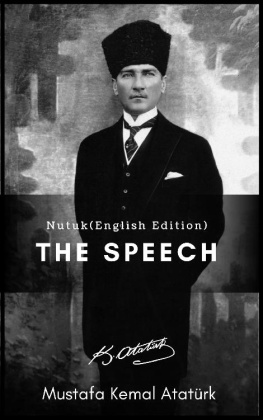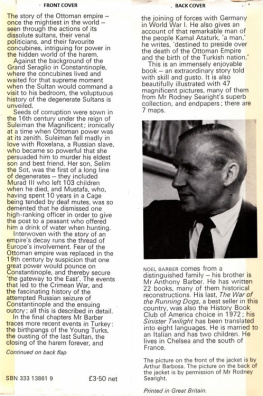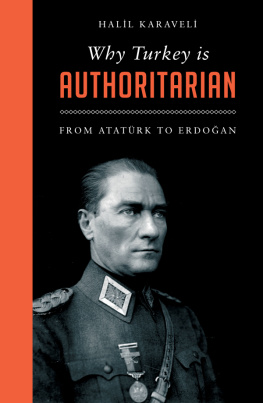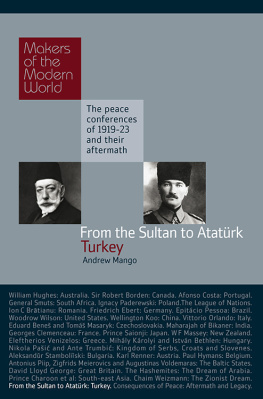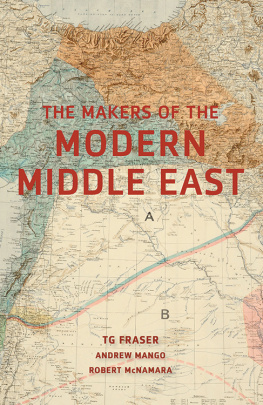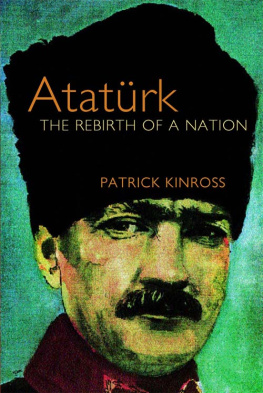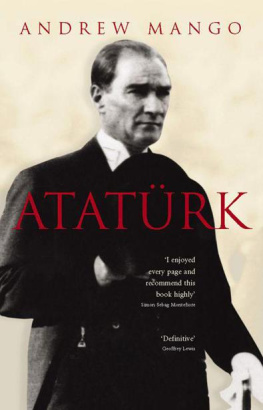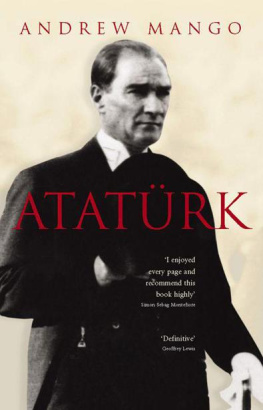As Atatrk did not single-handedly create Turkey, I have not crafted this book without help. There was an army of people who supported me throughout my journey, and I am indebted to them all. However, my greatest debts are to the supervisors of my PhD thesis, of which this book is a revised version. In the first place, I should like to thank Prof. Esther Peeren, who gave so much time, energy and attention to reading my work, commenting thoroughly on everything, and correcting my drafts endlessly. In the course of writing this book, she has always pushed me to achieve better writing and conceptual clarity, and encouraged me to combine my empirical research with theory. I am also grateful to Prof. Frank van Vree for his suggestions for improvement, expert advice on media and film history, and great reading recommendations in history and philosophy. But above all, I would like to thank him for giving me the positive energy I needed during the writing process. In addition, I would like to thank Prof. M. kr Haniolu, who was immediately sympathetic to my research and extremely helpful, with factual corrections and valuable suggestions for improvement, particularly on late Ottoman and modern Republican history. I am especially grateful to Prof. Haniolu for inviting me as a visiting PhD student to Princeton University, which decisively changed the course of my research.
My greatest debts are also institutional, especially to the Amsterdam School for Cultural Analysis (ASCA) and the Amsterdam Centre for Globalization Studies (ACGS) at the University of Amsterdam, where I was a PhD fellow between 2012 and 2016. Their financial support made my extensive research possible. Many thanks go to a number of individuals who built, developed and continue to successfully manage these institutions, such as Prof. Jeroen de Kloet from ACGS, and Dr. Eloe Kingma and Jantine van Gogh from ASCA. I am also grateful to the Department of Near Eastern Studies (NES) at Princeton University, which gave me a wonderful opportunity to discuss parts of my research with a distinguished group of scholars and colleagues. I would like to especially thank Dr. Nilfer Hatemi for inviting me to present my work at the Turkish Table Talks. The director of the Seeger Center for Hellenic Studies, Dimitri Gondicas, allowed me to present part of my research in their workshop series to a lively group of scholars from various disciplines. I want to thank him not only for offering me this opportunity, which I enjoyed very much, but also for his hospitality during my time in Princeton. Also at Princeton, Prof. Thomas Y. Levins Early German Cinema seminar was extremely helpful for increasing my knowledge of film history as well as providing me with new theoretical insights that were highly inspirational for this book.
I owe a particular debt to the Harvard-Ko Universities Ottoman Summer School in Turkey, where I learned to read and translate Ottoman Turkish printed texts and manuscript documents. I should primarily thank Dr. Yorgos Dedes for accepting me into the school despite my unusual background, and for always being a great teacher. In particular, I should express my grandmother Hafize Ekincis great appreciation of Dr. Dedes for finally teaching her grandson the eski yaz properly. I would also like to thank Dr. Selim Srr Kuru, who developed my reading skills in Ottoman manuscripts further, and took the time to speak with me about my work in detail. He was also the one who made me aware of the power of language and literature. I am very grateful to Prof. Gnl Tekin for establishing such a great Summer School together with her husband Prof. inasi Tekin. I have to admit that without their school and its beautiful environment, I would have been much less attracted to learning Ottoman Turkish. I would like to express my gratitude to Prof. Evangelia Balta, not only for teaching me Karamanlidika but also for taking care of me as if I was her own son. Her love has inspired me to continually strive to become a better academic and a better human like herself. In the three summers spent at the Summer School, I learned a great deal about language, literature and history, and I accumulated invaluable experiences that helped me to grow as a young scholar; I hope I was able to reflect some of this in my work.
I also owe a great deal to the Turkish and foreign film archives I visited in the course of my research. I gratefully acknowledge the help of Dr. Levent Ylmazok and Prof. Asiye Korkmaz, who provided me with access to some of the films featuring Atatrk in the archives of the Turkish Film & TV Institute at the Mimar Sinan Fine Arts University (a.k.a. the Turkish Film Archives), and who shared their knowledge with me. I should also thank the archives of the Turkish Armed Forces Photo Film Center in Ankara for sending me a CD containing parts of several films featuring Atatrk. I am grateful to archivist Carol Swain from the National Archives in Washington, DC, who helped me identify films and documents on Atatrk. Moreover, I thank her for showing me what it means to be an archivist and how much archivists can advance a researchers work. I would especially like to thank a great man, Sam Bryan, who generously opened up his private archive in New York for me, and who searched tirelessly with me for the films, photographs and documents his father Julien Bryan produced on Atatrk. I am also grateful to Matthew Fisher, who helped me to find The March of Time s promotional newsletter Photo Reporter in the HBO Archives in New York and provided me with relevant information. I should also mention with gratitude the help of Greg Wilsbacher, Scott Allen and Benjamin Singleton at the Moving Image Research Collections (MIRC) at the University of South Carolina. With their help, I was able to discover the footage of Atatrk shot by the Fox Film Crew on Atatrk and Turkey, and be the first to write about it. Without the sympathy and generosity of all the people mentioned here, this book would not have been what it is now.
A number of scholars kindly shared their knowledge and published and unpublished works with me. In this respect, I should especially thank Prof. Erik-Jan Zrcher, Prof. Sibel Bozdoan and Prof. Reat Kasaba, as well as Dr. Ahmet Grata, Dr. Gldem Baykal Byksara and Prof. Heath W. Lowry. Dr. Mustafa zen, Dr. Gnhan Breki and Saadet zen kindly sent me their MA and PhD theses, and answered my questions, for which I am very grateful. I would also like to thank my colleagues Taylor Zajicek, zde eliktemel-Thomen and Ali zuyar for sharing their research with me. This book contains many parts that required translations from various languages into English; I must acknowledge the crucial contributions of my French teacher Emmanuelle Favreau, my American friend Daniel Fields, and the Turkish author Rfat N. Bali for the translations.
I take special pleasure in thanking my friends and my best critics, Oscar Aguirre Mandujano, Paul Babinski, Uzma Abid Ansari and Jaimee Comstock-Skipp, who helped me with their constructive comments on this book from its introduction to its conclusion. The final shape of this book owes much to my publisher I.B. Tauris and editor Sophie Rudland, who kissed the frog and turned it into a prince. Finally, I should like to thank my wonderful family: my mother Birten Din and my father Sebahattin Din, my aunts Yksel Ekinci and Zehra Dlger, and my grandparents Hafize and Kamil Ekinci, without whom I would not have been able to study. This book is dedicated to them.




